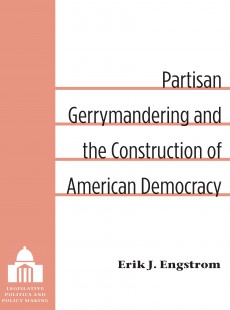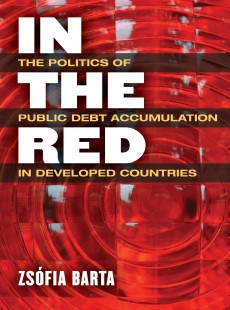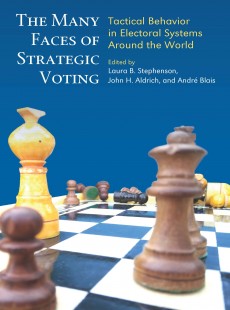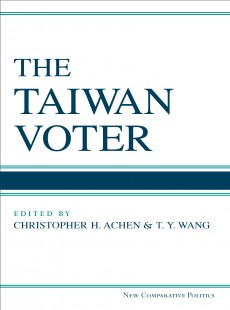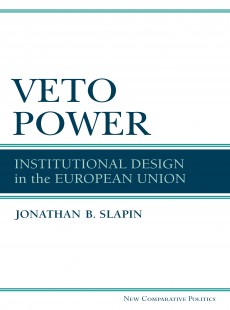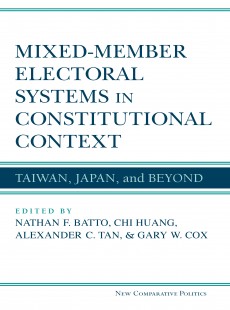
Mixed-Member Electoral Systems in Constitutional Context
Taiwan, Japan, and Beyond
Chi Huang Edited by Nathan F. Batto
 Publisher: University of Michigan Press
Publisher: University of Michigan Press
Imprint: University of Michigan Press
Published: 01/2016
Pages: 336
Subject: Political Science - Political Process/Elections, Political Science - World/Asian
Print ISBN: 9780472119738
eBook ISBN: 9780472900626
DESCRIPTION
REVIEWS
“This important volume provides detailed theoretically informed overviews of the (conditioned) impact of a new electoral system on the politics of Japan and Taiwan, with the added bonus of additional material on a number of other mixed-member cases (New Zealand, Philippines, Thailand, Bolivia and Russia prereform).”
—David Farrell, University College Dublin
—David Farrell, University College Dublin
RELATED TITLES

